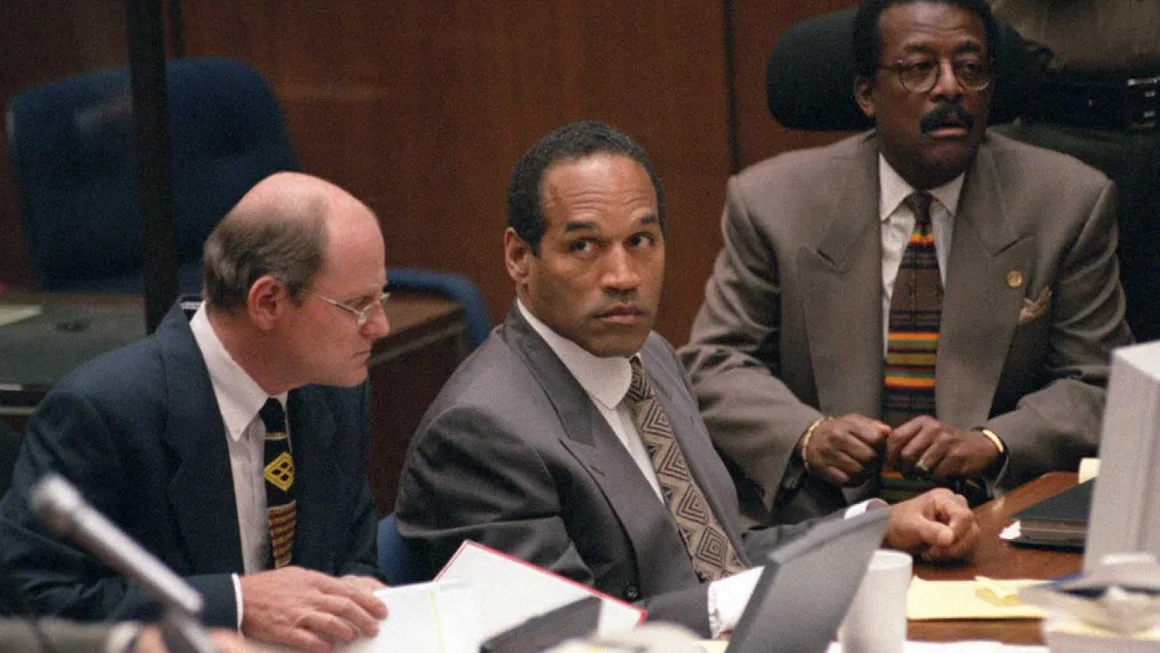O.J. Simpson gripped the nation’s attention for a final time Thursday.
As breaking news banners and push alerts crashed onto screens from coast to coast, stunning millions with news of the former National Football League star’s death, the moment produced one last Simpson-centric collective event for the national consciousness.
But the impact the former Heisman Trophy-winning running back, who spellbound the nation as he was tried and ultimately acquitted for the gruesome murder of his ex-wife, left imprinted on America’s media environment will endure long beyond his death.
In fact, it is not out of the question to wonder: Would Donald Trump have ever risen to political power and become president without Simpson?
On its surface, that might seem far-fetched. But the impression that Simpson’s all-consuming trial had on shaping the modern media environment cannot be overstated. From the moment Simpson led police on a low-speed chase down a Los Angeles freeway after being charged with the murders of Nicole Brown Simpson and her friend Ronald Goldman, the media landscape was never the same.
Simpson’s ensuing trial in 1995 drew astonishing audience interest, with an unprecedented 150 million people tuning in on October 3 to watch the stunning verdict delivered live on television. The extraordinary attention the case generated helped launch the careers of a generation of household media stars, including Jeffrey Toobin, Nancy Grace, Greta Van Susteren, Dan Abrams, Harvey Levin, Gregg Jarrett and scores of others.
The trial was also a milestone for the use of live TV cameras in the courtroom, transforming a typically closed-to-the-public process of justice into a cultural and entertainment spectacle that is still widely known as the Trial of the Century. Judge Lance Ito’s decision still resonates to this day, with judges often criticizing the “circus” atmosphere created by the trial as they weigh whether to allow the public to view such proceedings.
But the most consequential effects the trial had on American life were far broader. Simpson’s trial gave way to a media landscape dominated by salacious reality television and talking head-driven cable news.
Not only did Simpson’s trial catapult Robert Kardashian (and thus the entire Kardashian family) to fame, it also served as the first major reality television show to hypnotize the nation, giving way in later years to a number of programs aimed at capitalizing off unscripted high-drama.
Meanwhile, the wall-to-wall coverage of Simpson’s legal showdown, having entranced the nation, delivered a hefty viewership boost to outlets such as CNN and Court TV, helping to cement cable’s role as a destination for live news. Prior to the legal drama, Americans generally relied on the nightly newscasts for their daily dose of headlines. But the Simpson trial produced endless hours of courtroom theater, prompting viewers to tune in before the likes of Peter Jennings and Tom Brokaw made their way to air.
Times, the surge in cable television viewership was so significant that it actually reduced the audience for the three broadcast nightly news programs. Andy Lack, then president of NBC News, said the impact was so pronounced that he worried about the Peacock network taking a “significant economic hit.”
The Simpson trial’s footprint on cable news did not stop there. According to media historian and University of Maine Communications and Journalism professor Michael Socolow, the trial helped persuade Rupert Murdoch into launching Fox News. Socolow said the Australian media mogul “grew enraged” watching CNN founder Ted Turner “rake in” an estimated $200 million from the live coverage of Simpson’s trial. And, to that end, Socolow said Murdoch was energized to launch his right-wing alternative in 1996 to grab his own slice of the lucrative pie.
It’s difficult to imagine Trump being elected to the White House without the three-legged stool that Simpson’s trial played a crucial role in building. Is there a Trump presidency without reality television? Or cable news? Or, especially, Fox News?
Trump exploited each of those branches of the post-Simpson media environment to gain fame. And then he ultimately used them to seek — and hold onto — political power.
“Simpson proved enormous profits could be generated from high ratings from programming that did not require actors and writers and sets. Reality TV had started earlier, but after Simpson there was a massive profusion of ‘Reality TV,’” Socolow said in an email. “That’s how ‘The Apprentice’ gave Donald Trump a comeback in American culture, and he rode his reality TV stardom to the White House.”


Leave a Reply